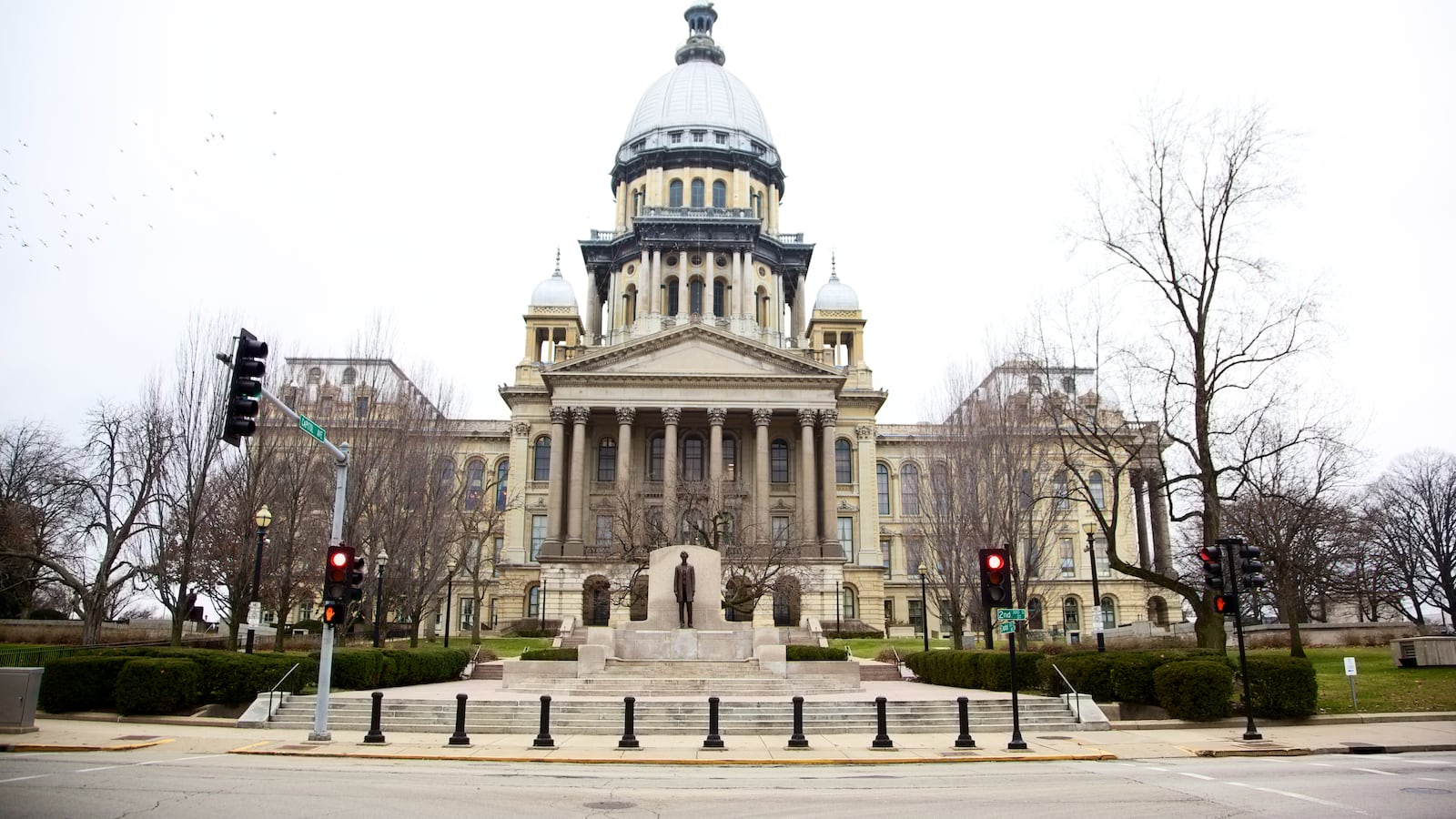Back in session for 2019, the Illinois General Assembly is staring down a series of tough education-related issues: unfunded pension obligations, a historic teacher shortage, and a new governor with a brand-new education plan.
Chalkbeat spoke to state Sen. Jennifer Bertino-Tarrant, a Democrat who represents South Elgin, Batavia, and other Chicago suburbs in the 49th District and chairs the education committee, about creative solutions for education funding and the importance of “walking the talk.”
Before entering politics, Bertino-Tarrant was a teacher and a principal in Will County, and has also taught education at the University of St. Francis, Olivet Nazarene University, and Joliet Junior College.
This interview has been condensed and lightly edited.
Illinois is facing an education funding crisis. What do you see as the legislature’s role in providing equitable funding?
We have to make sure we are committed to the minimum-based funding. As you know with the formula it’s going to take nearly 10 years to completely fund [education in Illinois]. Ten years is not a reasonable number.
Where could the money to fill Illinois’ education budget hole come from?
It can’t be an all-cut system. We have experience with what it is like to cut to the bone. We have to start getting creative in how we look at funding. It’s a priority. Every person who is elected puts education on the top of their talking points, and we just need to start walking the talk here.
As head of the education committee, how will you help the legislature “walk the talk”?
I think it’s being cautious, especially when we are passing legislation, that we don’t create legislation that adds more expenses. Every time we do that it takes away from our current priorities. We need to be cognizant with what goes through the ed committee to not put additional demands on our school districts.
Gov. Pritzker has called for a progressive income tax, but that may not be enough.
It’s not the education dollars that are causing the crisis, it’s the years of not paying the pension debt. That’s our 800-pound gorilla — how we are going to pay down the pension debt. When we do that, the hope is that other things will even out. What will be different than before is we will be able to have these discussions more openly. We spent the last four years fighting other things [Illinois had a two-year budget impasse that ended in 2017]. Now we’re able to really start focusing on things that are priorities and that is education amongst other things.
With J.B. Pritzker in the governor’s seat, will there be an end to the traditional Chicago vs. Illinois struggle for influence and resources?
I think he has proven that in his campaign — he continues to make sure that people who surround him are from all parts of the state. I definitely think that that whole “Chicago versus everyone else” is going to go away. In reality we are one state for all our children, all our constituents.
How can the legislature help tackle the dire teacher shortage in Illinois?
It is going to be one of the top priorities that we will hear about. First and foremost we need a new attitude regarding public school and public school teachers. Demonizing them makes people hesitant to get in a profession. We need to look at why teachers are leaving. I’m going to be cautious to make sure we are looking at legislation to make sustained changes and not just Band-Aids. We need to recognize the noble profession it is and that starts at the top.
How does being a former teacher and principal impact your insight into the education challenges facing the state?
We have to start treating teaching as a valuable profession.We mandate a degree but don’t recognize that in how we pay our teachers. Now you have low pay and a poor pension, when teachers are in school we have neglected the mentoring and student teaching, there are demands coming from every direction on top of the fact you are there to provide a quality education. There are a lot of things we can look at to make the teaching career more plausible and exciting.
If you could pass any legislation tomorrow, what would it be?
I would give school districts all the funding they need. I would completely fund the evidence-based model. It’s a political decision. If you’re not bringing in more revenue, you have to look at other things that aren’t on the top priority, and those are hard political decisions for people to make.
The state charter commission’s power has been under threat in the legislature. Do you expect this to change?
We promote local control unless we don’t like it and then we go to the state for things. Communities elect school boards [with the exception of Chicago] and school boards are there to make the best decision. When they reject a proposal I think that should be the way the decision is made. We do not need an extra step to override that decision.
What should people know about your work as head of the education committee to help them understand how politics works in Illinois?
There is a lot of behind-the-scenes negotiation. I always say people’s intentions are good, we all want what is best for the kids but we have to slow it down and ensure there are not unintended consequences. Schools are the only place you can get thousands of kids in one place but we have to understand that we expect our students to come out with certain skills so everything can be put into education. My job is having those discussions with members saying this may benefit just a certain area. We need to make sure it impacts all our students positively.

